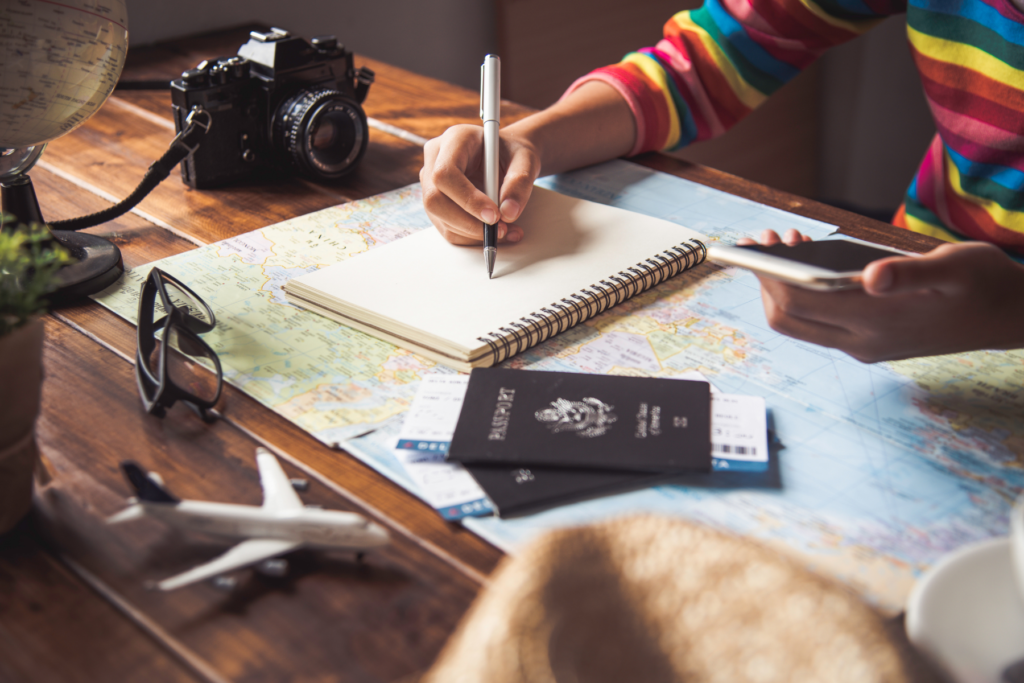Traveling as a student can be a life-changing experience. It opens your mind to new cultures, ideas, and perspectives, all while creating memories that last a lifetime. However, one of the biggest challenges students face when planning a trip is managing their budget. Fortunately, with careful planning and smart strategies, traveling on a limited budget is entirely possible. Here are some practical budget travel tips for students to explore the world without draining their wallets.
1. Plan and Research Ahead of Time

One of the most effective ways to save money on travel is by planning ahead. Start by researching your destination thoroughly. Look for affordable accommodations, local transportation options, and free or low-cost attractions. Planning ahead also allows you to take advantage of early-bird discounts on flights, trains, and hostels. Websites like Skyscanner, Google Flights, and Hostelworld can help you find the best deals.
2. Travel During Off-Peak Seasons
Traveling during peak tourist seasons can be expensive. Flights, hotels, and attractions often cost significantly more during holidays or summer breaks. By choosing to travel during off-peak times, students can save a considerable amount of money. Off-season travel also means fewer crowds, allowing you to enjoy popular tourist spots more comfortably.
3. Use Student Discounts
Many companies and attractions offer special discounts for students. Always carry your student ID or apply for an International Student Identity Card (ISIC), which provides discounts on transportation, museums, entertainment, and even some flights. These discounts may seem small, but they add up over the course of a trip.
4. Opt for Budget-Friendly Accommodations

Accommodation can be one of the largest expenses for travelers. Students can save money by choosing hostels, guesthouses, or budget hotels instead of expensive hotels. Platforms like Airbnb or Couchsurfing also offer affordable or even free lodging options. Additionally, consider staying slightly outside the city center—transportation costs might increase slightly, but lodging prices are usually lower.
5. Travel Light and Smart
Avoid checking in heavy luggage whenever possible. Many budget airlines charge extra fees for checked bags, and packing light can save both money and stress. Carry only what you truly need, and invest in a quality backpack that is both durable and compact. Additionally, packing essentials like reusable water bottles, snacks, and basic toiletries can help you avoid expensive purchases during your trip.
6. Use Public Transportation
Instead of relying on taxis or ride-sharing services, use public transportation. Buses, trams, and trains are generally much cheaper and allow you to experience the local lifestyle more authentically. Some cities offer transportation passes for tourists or students, providing unlimited travel at a fixed price. Walking or renting a bike is also a cost-effective and healthy way to explore.
7. Cook Your Own Meals
Eating out can quickly eat up your travel budget. Opt for accommodations with kitchen facilities or stay in hostels that provide communal kitchens. Cooking your own meals not only saves money but also gives you the opportunity to try local ingredients in a new way. Visiting local markets and grocery stores can also be a fun cultural experience while keeping costs low.
8. Look for Free and Low-Cost Activities

Not all travel experiences have to be expensive. Many cities offer free walking tours, museums with free entry days, parks, and cultural events. Exploring nature, attending local festivals, or simply wandering through historic neighborhoods can provide enriching experiences without spending much. Make a list of free activities before your trip to ensure you make the most of your time and budget.
9. Travel with Friends
Traveling in a group can significantly reduce costs. You can share accommodation, split transportation expenses, and even cook meals together. Group travel also adds a social element to your journey, making the experience more enjoyable and memorable.
10. Keep Track of Your Expenses
Finally, to ensure your budget lasts the entire trip, track your spending carefully. Use a budgeting app or a simple notebook to monitor your daily expenses. This will help you avoid overspending and make adjustments if necessary. Small savings in one area can free up money for other experiences that you don’t want to miss.
Conclusion
Budget travel as a student is all about smart planning, creativity, and flexibility. By researching destinations, taking advantage of discounts, choosing affordable accommodations, and embracing cost-effective activities, students can explore the world without financial stress. Traveling on a budget doesn’t mean missing out on experiences—it often encourages more meaningful interactions, unique adventures, and a deeper connection with the places you visit. With these tips, students can embark on unforgettable journeys while keeping their finances in check.

